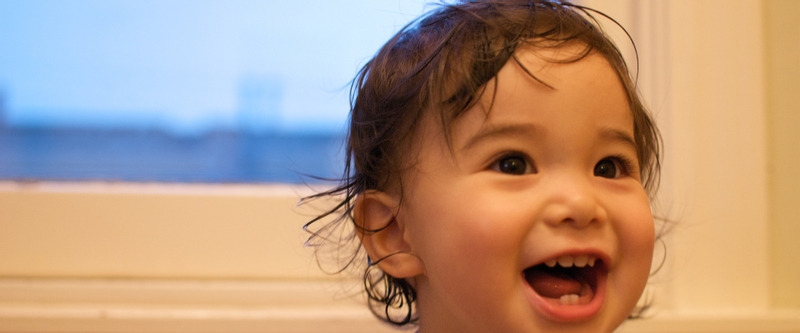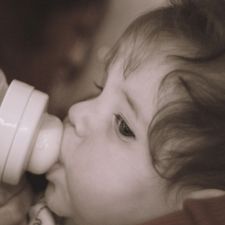Yes, definitely! Good oral health is very important for young children, because problems that develop in their baby teeth can have negative effects that last a lifetime. So even though baby teeth will eventually fall out, it is important to develop good oral health routines and see a dentist about any problems that come up.
Reasons that baby teeth matter
Learning how to chew – It may seem simple to us now, but children actually need to learn how to chew. In fact, most children don’t completely master chewing until the age of four. The development of baby teeth is part of your child’s gradual discovery of chewing. Without them, your child may not learn proper chewing habits, making it hard to get the necessary nutrition.
Learning how to talk – We use teeth everyday when we talk, and it’s important for your child’s speech development that he or she has a healthy set of baby teeth to use in practicing those first adorable words.
Succeeding in school – Once your child starts school, you want him or her to be able to focus on what the teacher is saying, not be distracted by tooth pain.
Proper jaw development – The baby teeth help the bone structure of the jaw to develop properly. Without them, there may not be enough room for adult teeth to come in, causing crowding.
Clearing the path for adult teeth – When you lose a tooth, whether it’s a baby tooth or an adult one, the other teeth gradually move in to fill the space. This is problematic for adults, but it can be even more of an issue for children. If the baby teeth move together, they can block the emerging adult teeth, which can lead to crowding or crooked teeth that require expensive orthodontic treatment.
Top preventative tips for baby teeth
Clean the gums of infants after feeding – Clean your baby’s gums with a damp cloth between feedings. If teething is causing discomfort, give you child a cool washcloth or teething ring to chew on. For more tips, see Dental Care for Children: Birth to 12 Months.
Don’t put children to bed with a bottle – Allowing a child to sleep with a bottle is a recipe for cavities and tooth pain. It’s best to restrict bottle access to feeding times.
Don’t swap spit with your baby – Parents often share food with their young children, or “clean” utensils or pacifiers by putting them in their mouths. This isn’t a good idea. Cavities are a transmittable disease, so you might actually be exposing your child to harmful bacteria.
Offer healthy snacks – Once your child starts eating solid food, offer fruits, vegetables, cheese and other healthy snacks. Try to avoid processed snacks or sweets, and when you do offer sugary treats, have children brush their teeth afterward. Limit juice to meals and offer water if your child complains of being thirsty at other times.
Further Reading
- American Dental Association. (n.d.). Baby Teeth. MouthHealthy.
- Hornsby, W.C. et al. (2017). ”Busting the Baby Teeth Myth and Increasing Children’s Consumption of Tap Water: Building Public Will for Children’s Oral Health in Colorado.” Frontiers of Public Health.
- Wisconsin Dental Association. (n.d.). Baby Teeth Matter.




